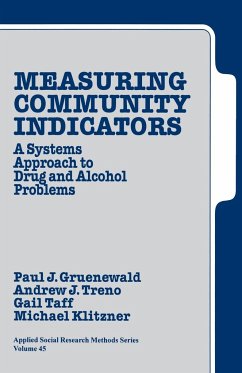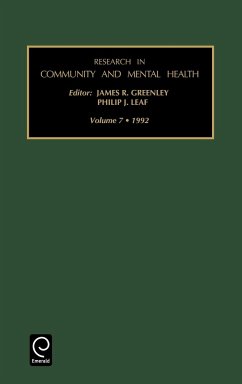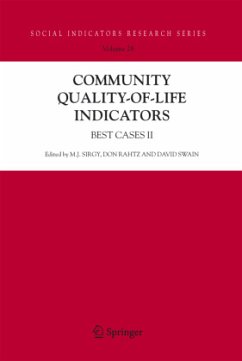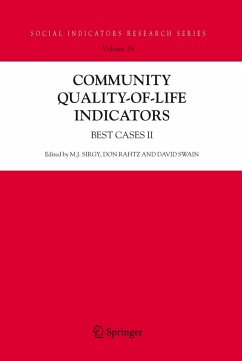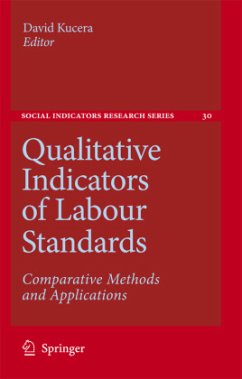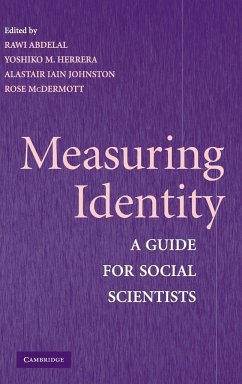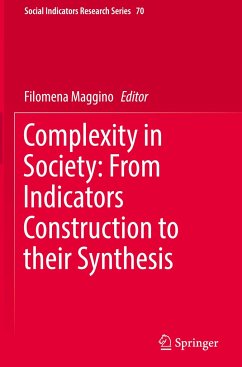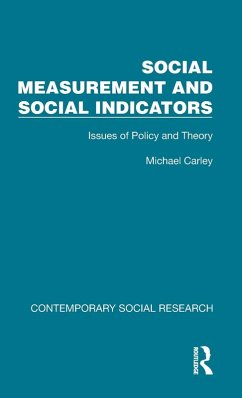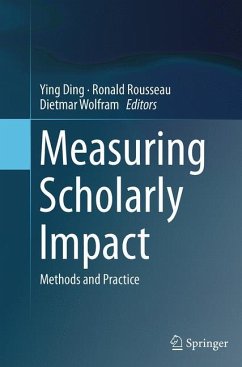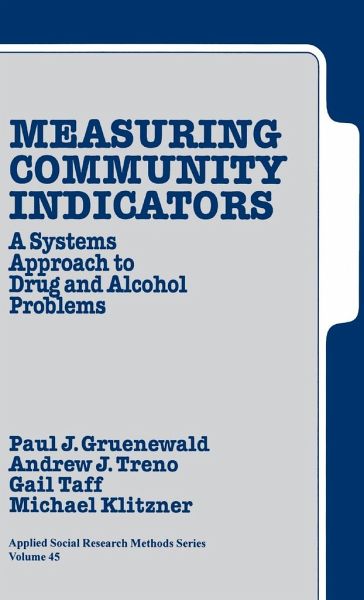
Measuring Community Indicators
A Systems Approach to Drug and Alcohol Problems

PAYBACK Punkte
74 °P sammeln!
How do communities go about measuring the effectiveness of their drug and alcohol abuse programmes? This useful volume provides communities and researchers with the necessary analytic and practical tools for assessing their programmes. The authors begin with a presentation of how to collect community indicator data, arguing that while highly aggregated national data perform a number of important research and policy functions, such data are distinct from community indicator data and of questionable use to local policy-oriented officials. Next, they present a theoretical perspective, developed f...
How do communities go about measuring the effectiveness of their drug and alcohol abuse programmes? This useful volume provides communities and researchers with the necessary analytic and practical tools for assessing their programmes. The authors begin with a presentation of how to collect community indicator data, arguing that while highly aggregated national data perform a number of important research and policy functions, such data are distinct from community indicator data and of questionable use to local policy-oriented officials. Next, they present a theoretical perspective, developed from community systems theory, as a basis for the practical strategies outlined in the book. They then cover topics such as: different community indica





